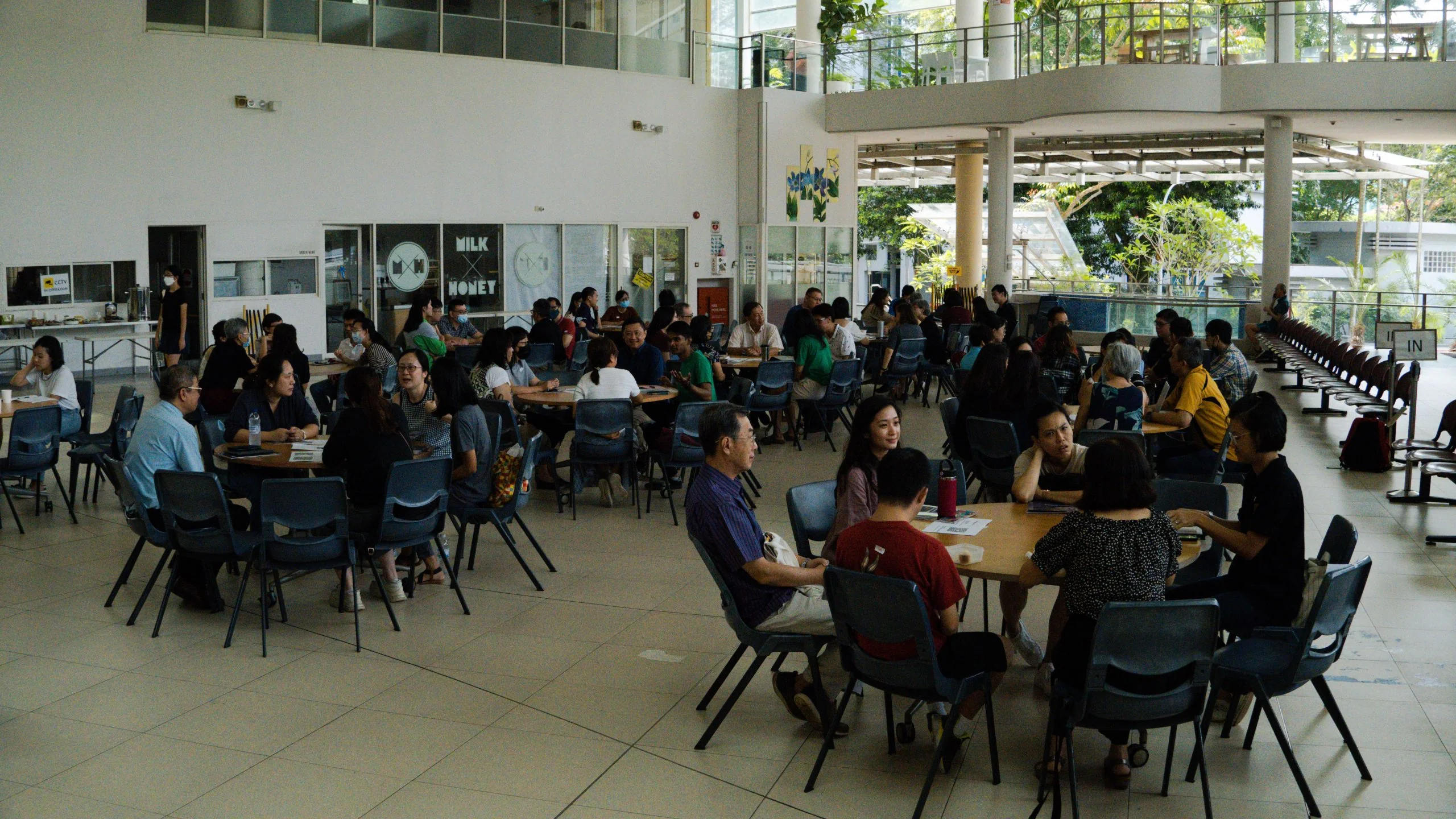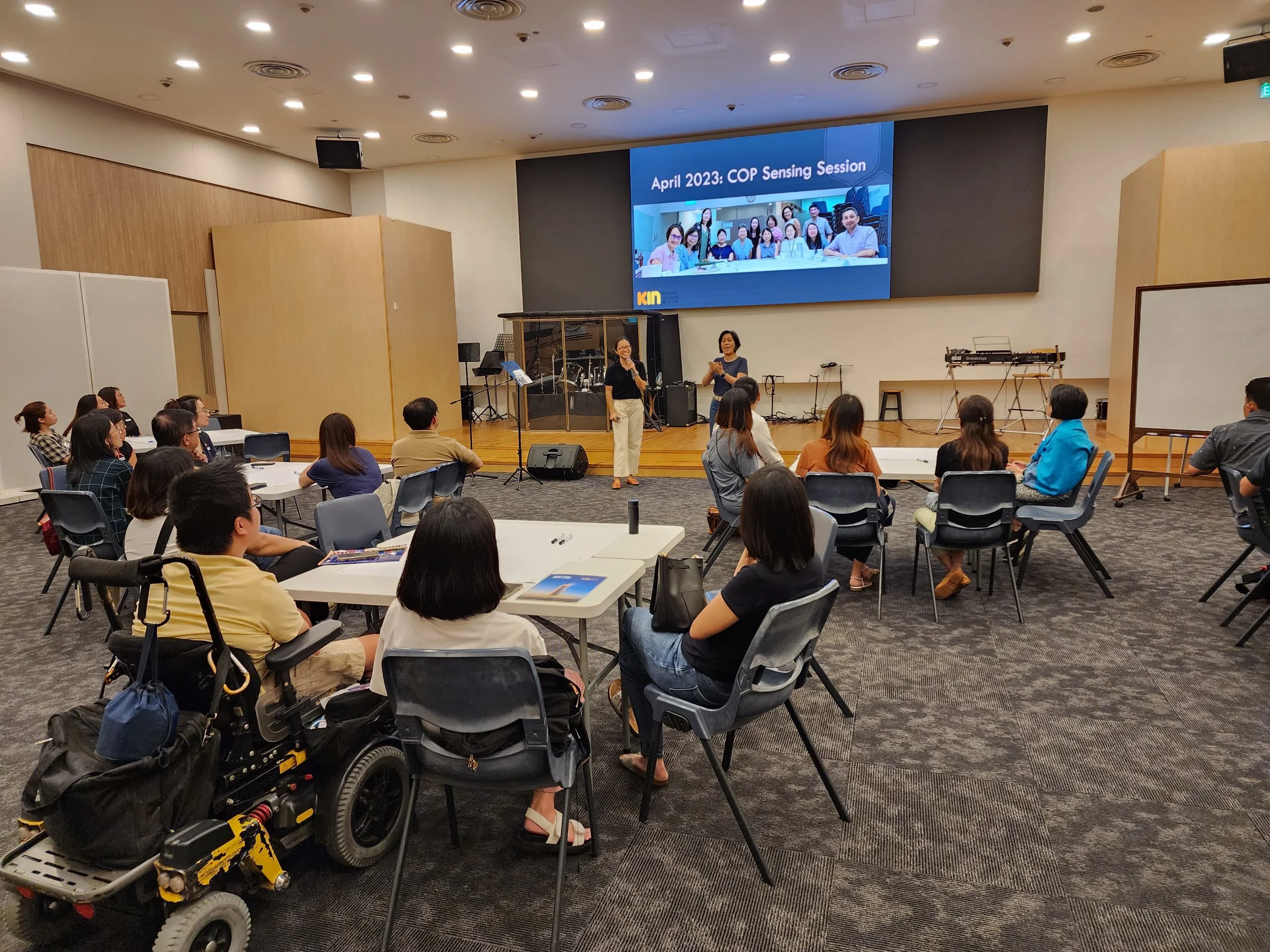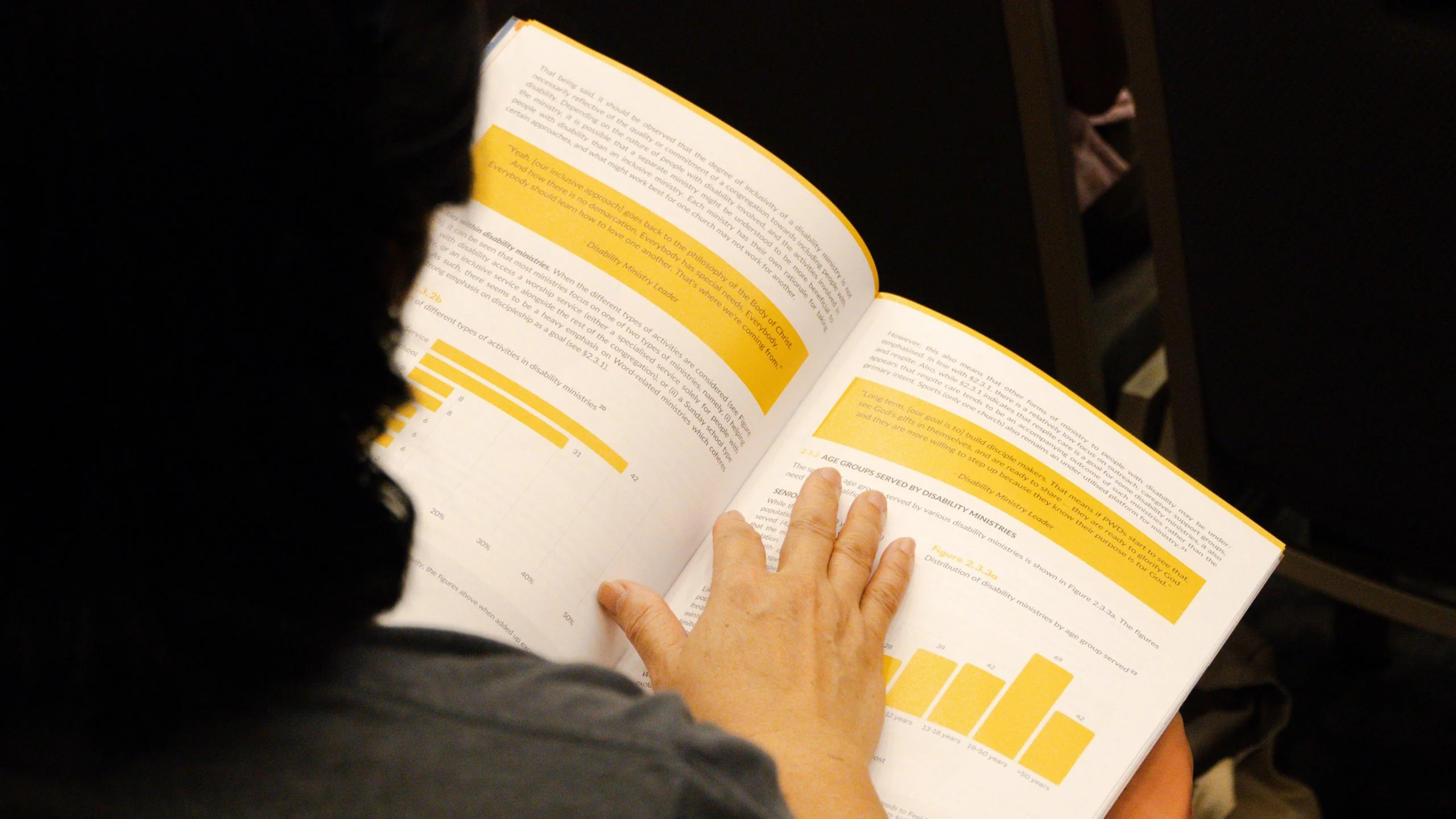Whither the Church and disability ministries in Singapore?

Have you entered a church where people with and without disabilities worship God in “harmony”? Occasionally, there might be a sudden shout during worship, a person rocking back and forth during prayer, or someone running around the pews during the sermon. No one bats an eyelid. The pastor continues his preaching. There’s an occasional smile and a look of understanding from the congregation.
What if that same person who shouted is invited to the pulpit to read the Scriptures, the father of the person who was rocking back and forth serves as a worship leader, while the person who ran about during the sermon helps out in collecting the offering?
These are just some ways that churches have included people with disabilities and their family members. In this scenario, liturgical worship is redefined when the church opens up avenues for people with disabilities to serve. But why should we care?
Answering this question is one of the reasons Koinonia Inclusion Network (KIN) exists. Birthed in 2019, KIN is a disability mission organisation that enables the Church to welcome and disciple people of all abilities. KIN aims to partner with churches to fulfil their missional effort to bring the gospel of Jesus Christ to people with disabilities. We do this through equipping, resourcing and connecting the churches in Singapore.

Group discussions among disability ministry leaders and volunteers during the SDMS launch

KIN’s first Community of Practice held in St James Church
The Landscape of Disability in Singapore
As part of its work to support the Church in Singapore, KIN conducted a Singapore Disability Ministry Survey (SDMS) in 2023 to understand more about the state of disability ministries and the needs and challenges faced by churches in welcoming people with disabilities in their midst.1 (The term “disability ministry” refers to any ministry that makes deliberate plans to include people with disabilities and/or their family members.)
The Church in Singapore has been key in supporting people with disabilities through social services. Social service agencies such as the Methodist Welfare Services, St Andrew’s Mission Hospital, Singapore Anglican Community Services and TOUCH Community Services have made a significant impact on the national disability landscape.2 While we may boast about our presence in the social service space, hardly the same can be said of the churches. Only 5%, or 26 churches, have one or more disability ministries among the 600 Protestant churches in Singapore.
Most of these ministries come from churches which are Anglican (five churches; 19%), Methodist (six churches; 23%), or Independent Pentecostal (10 churches; 38%). Less represented in proportion to their populations are the Bible-Presbyterians (one church), Presbyterians (one church) and Brethrens (three churches).
While it is of great encouragement that there are 40 ministries in these 26 churches serving about 1,100 people with disabilities, they only address about 10% of the population of believers. The SDMS estimates that 90% of believers with disabilities are unchurched in Singapore.
Social realities of the present day also nudge us to think about the future. The government’s Enabling Masterplan (EMP) 2030 highlights the increasing number of children with autism and the ageing population of Singapore as realities that we must not ignore.3 What these trends tell us is that disabilities are going to be a progressively salient reality for churches. We need more disability-inclusive churches to reach these 90% of unchurched believers, and more, so that all will have access to the love of Christ through our churches.
To do this, we need churches to step up and fulfil the call of our Lord to bear one another’s burdens (Gal 6:2).
The future of disability ministries
With all the data that we have now, it is clear that we need:
- more disability ministries;
- to support and develop our disability ministry leaders better; and
- to mobilise more volunteers in disability ministries.
Beyond the need for more disability ministries in churches in Singapore, KIN also sees a need for greater diversity of ministries. Most disability ministries in Singapore exclusively comprise Word-focused ministries (e.g. Sunday schools). What may be lacking would be other forms of ministry to reach out more broadly to people with disabilities. For example, 3:16 Church started Singapore’s first sports-based Christian outreach ministry to persons with disabilities in 2021.

The SDMS report which is available on KIN’s website
With the rise of dementia among the elderly population,4 churches could also focus on seniors, not just those with physical disabilities, but on those with dementia and other mental-related issues. Another cause for consideration would be a ministry to the parents and caregivers of those with special needs. With the recent case where a father killed his two autistic sons in Singapore, churches could look into investing in greater pastoral care support for the special families in their midst even if they do not provide disability ministries.
From the SDMS data, we found that churches with disability ministries are often under- resourced with skilled volunteers, and their disability ministry leaders have not received sufficient training. Therefore, KIN has developed several strategic programmes to equip disability ministry leaders and volunteers:
i. Community of Practice: a community where continual training, pastoring, and collaboration takes place between disability ministries and churches;
ii. Certificate Of Christian Disability Ministry (CCDM): a one-stop training platform for disability ministry volunteers and leaders;
iii. Further training with Western Theological Seminary (WTS): to deepen the competencies of CCDM graduates who are disability ministry leaders;
iv. The Leaena Tambyah Scholarship for Disability Ministry: financial support for CCDM graduates who are interested to pursue the WTS route; and
v. Inclusive Sunday School Programme: a focused training programme for Sunday school teachers and volunteers who are interested in developing their existing Sunday schools into inclusive programmes.5
What you can do
What about those of us who are not yet involved in reaching out to our special friends? Individually and collectively in your small groups, there are many small ways you can start:

Be a friend
If a person with disability comes into your life, your workplace, church, or neighbourhood, start by being a friend to them. It can be as easy as asking them their name and finding out about their family.

Include people with disability and their families into your small groups
Invite them to join you for meetings. Pray for them. Think about how you can modify your small-group time, especially worship and teaching, to include them meaningfully.

Equip yourself
KIN has published a few resources, namely Enabling Hearts: A Primer for Disability-Inclusive Churches and Enabling Communities: Bible Studies on Including People with Disabilities in Church. If you desire to learn more about disability from a biblical perspective, consider getting yourself upskilled with the CCDM programme.

Give your time
Consider serving people with disabilities in church. If your church doesn’t have a disability ministry, look out for those run by other churches or para-church organisations. An example is Jesus Club.
As you respond to the call to be a faithful church, I believe our God will be faithful to show us through personal experience how “the parts of the body that seem to be weaker are [truly] indispensable”, (1 Corinthians 12:22) [emphasis by author]. The Body of Christ can only be whole when all are welcomed and discipled.
A new resource: Koinonia Groups
Koinonia Groups is a new resource from KIN for churches and individuals interested in creating small groups that include people with disabilities. Written by Ps Leow Wen Pin, Chew Ping Lin and Jesselyn Ng, the book aims to provide practical handles for growing together in Christlike-ness regardless of a group’s abilities and differences. Details for the book launch are as follows:Date: Saturday, 11 May 2024 Time: 10 am – 12 pm (Lunch to follow) Venue: Leng Kwang Baptist Church | Nearest MRT: Stevens (DT10/TE11)1. The full survey can be read online https://kin.org.sg/get-resourced/#sdms.
2. Leow, Wen-Pin. “Disability Ministry in Singapore: Current State and Future Prospects.” Reformed World 70, no. 1 (2022): 55–61.
3. More information here https://www.msf.gov.sg/what-we-do/enabling-masterplans/emp2030
4. Institute of Mental Health. “Study Establishes Prevalence of Dementia among Older Adults in Singapore,” March 25, 2015. https://www.imh.com.sg. Accessed 31 Jan 2023.
5. KIN’s programme information can be found here https://kin.org.sg/get-equipped#certificate-of-christian-disability-ministry
Joanna Ong is the Manager (Programmes) at Koinonia Inclusion Network (KIN). She worships at Covenant Evangelical Free Church. As someone with experience in education and research, she hopes that persons with disabilities can be a part of, and not apart from, the church community. / Photos courtesy of KIN
A version of this article was first published in Methodist Message (April 2024). The article is reproduced with permission.
